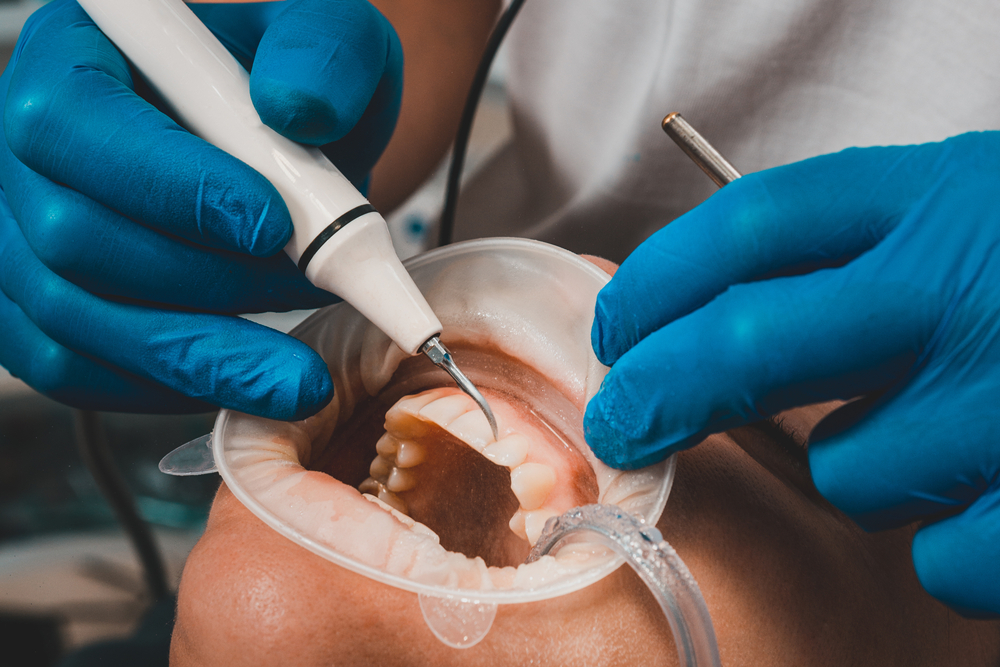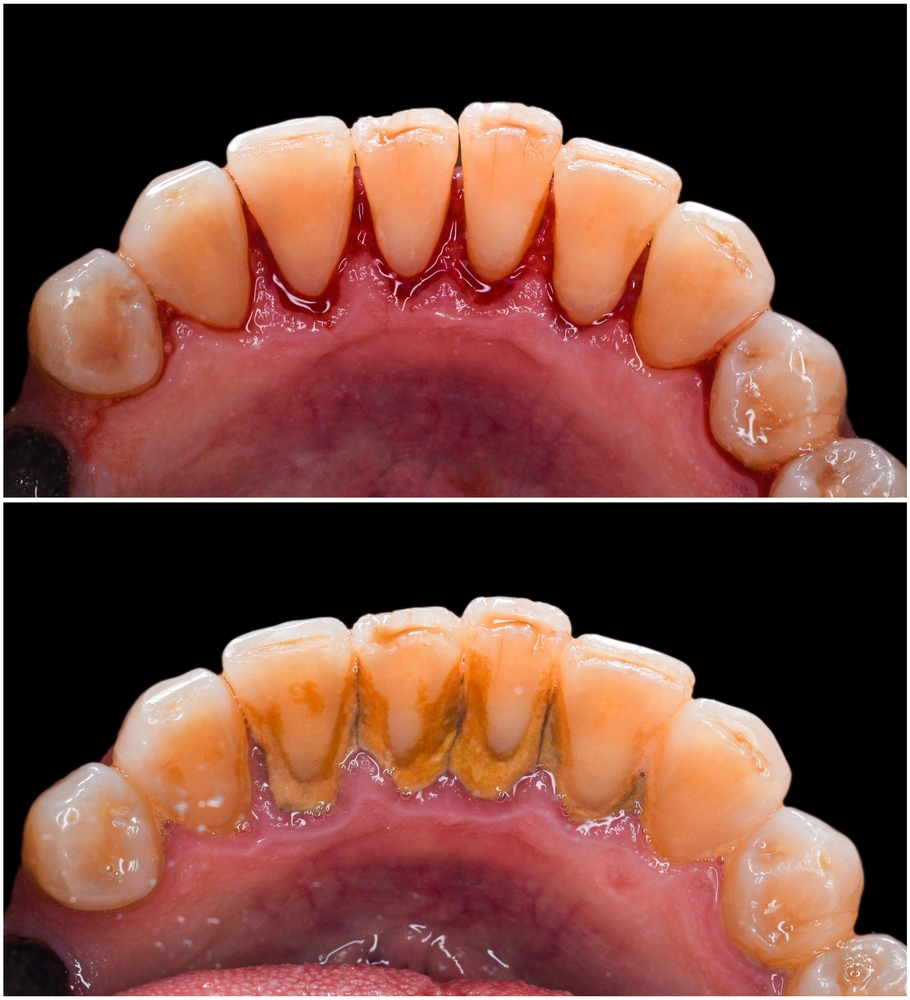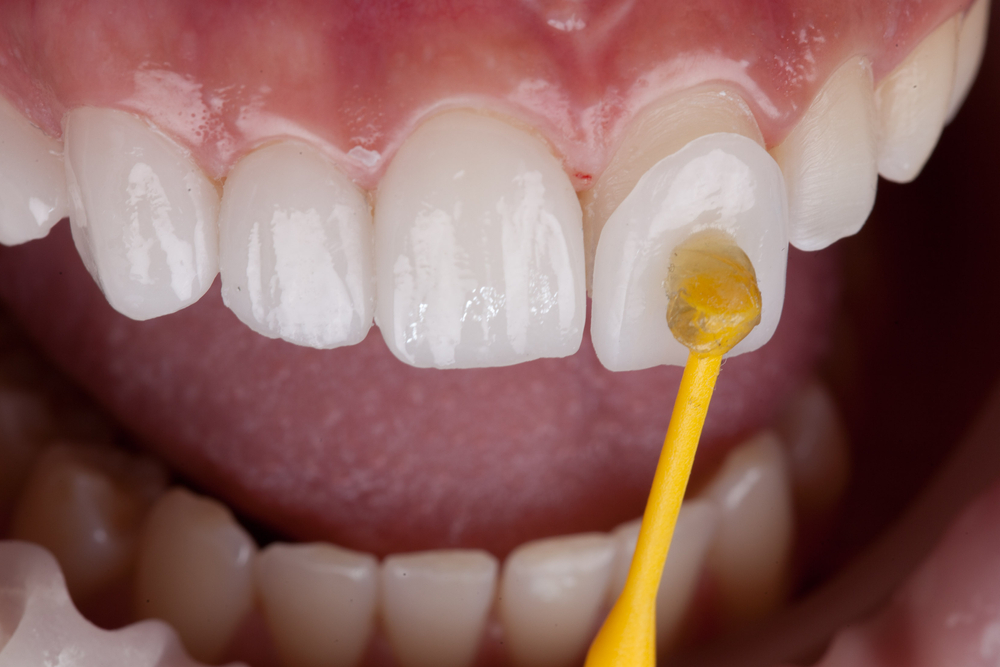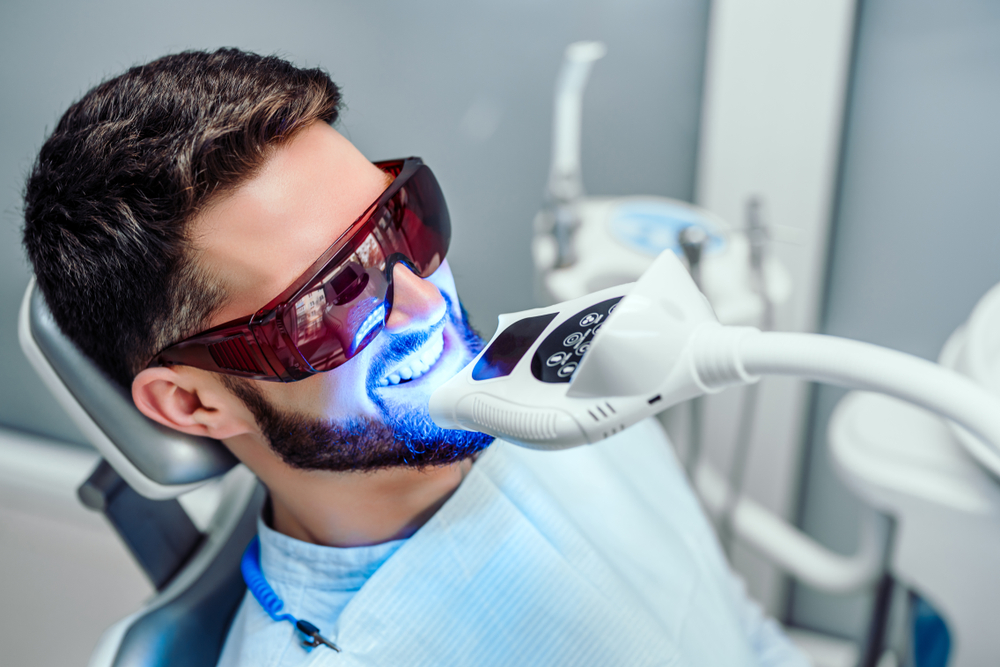When we talk about dental cleanings, we’re discussing a key practice that’s really important for keeping our mouths healthy. Just like brushing and flossing at home, visiting a dental professional for a cleaning is a big part of taking care of our teeth and gums. But it’s more than just about a bright smile – these cleanings play a huge role in stopping bigger dental problems before they start.
Think of dental cleanings as a professional touch-up for your teeth. They help get rid of the stuff that your toothbrush might miss and check for any signs of trouble. It’s kind of like going to a doctor for a check-up – it’s all about making sure everything is okay. By doing this regularly, you’re not just keeping your teeth looking good, you’re also taking a big step in keeping your whole mouth healthy. And when your mouth is healthy, it’s good news for your overall health too!
What is a Regular Dental Cleaning?

Now, let’s talk about what happens during a regular dental cleaning. This isn’t just any tooth-brushing session – it’s a detailed cleaning done by a dental hygienist, a professional trained to keep your teeth in great shape. They have special tools and know-how to give your teeth a deep clean.
In a regular cleaning, the hygienist will focus on removing plaque and tartar. Plaque is that sticky film you feel on your teeth, and tartar is plaque that’s hardened over time. Both can cause problems like cavities and gum disease if they’re not taken care of. The hygienist uses a process called scaling to gently scrape off this plaque and tartar.
But it doesn’t stop there. After scaling, they’ll polish your teeth. This part is not just about making your teeth shiny; it also smoothes the surface of your teeth so that plaque has a harder time sticking to them. And if there’s a lot of tartar build-up, they might do something called debridement to get rid of it.
Regular dental cleanings are super important for keeping your gums healthy. Gums are the unsung heroes of our mouths – they hold our teeth in place and protect our jawbones. So taking care of them is a big deal. By getting these cleanings done, you’re helping prevent gum diseases, like gingivitis, which can lead to more serious issues if left unchecked.
In short, think of a regular dental cleaning as a spa day for your teeth. You leave not only with a cleaner, brighter smile but also with the peace of mind that you’re taking great care of your oral health.
Deep Dental Cleaning Explained
Deep dental cleaning might sound a bit daunting, but it’s a really important procedure for certain dental conditions. This is a step beyond your regular cleaning and is also known as scaling and root planing. It’s like a deep dive into the health of your gums and teeth, especially useful for those showing signs of gum disease.
Gum disease, like gingivitis or more advanced periodontal disease, is when your gums are really unhappy – they might be swollen, red, or bleed easily. This is where deep cleaning comes in. The dental hygienist or dentist works to carefully clean not just the surface of your teeth, but also the area under the gums and down to the roots of your teeth.
During this process, they remove plaque and tartar (that hard stuff your regular cleaning targets) from beneath the gum line. This is super important because if left untreated, these areas can harbor harmful bacteria that lead to worsening gum disease, and eventually, could even lead to tooth loss.
Comparing Regular and Deep Cleanings

So, how does a deep cleaning differ from the regular cleaning you’re used to? Well, think of regular dental cleaning as routine maintenance. It’s like keeping your car running smoothly with regular oil changes and tire rotations. It’s all about prevention and keeping things in good shape.
Deep cleaning, on the other hand, is more like a specialized repair job. It’s there to address an existing problem – like gum disease – and to prevent it from getting worse. It’s a more involved process and is specifically tailored to treat the affected areas of your mouth.
While regular cleanings are generally recommended for everyone as a part of good oral hygiene, deep cleanings are recommended for those who need extra care for their gums and teeth. If your dentist suggests a deep cleaning, it’s because they’ve noticed signs that indicate you might need this extra level of care to keep your mouth healthy.
In summary, while both types of cleanings aim to keep your mouth healthy, they serve different purposes. Regular cleanings are your ongoing, routine care, and deep cleanings are more like a targeted treatment plan for specific oral health issues. Both are important in their own ways for maintaining a happy, healthy mouth!
The Role of Plaque and Tartar in Dental Health
Let’s talk about plaque and tartar – the main villains when it comes to dental health. Plaque is this sticky, colorless film that constantly forms on our teeth. It’s full of bacteria and can lead to tooth decay and gum disease if we don’t keep it in check. Every time we eat or drink something that’s sugary or starchy, the bacteria in plaque produce acids that attack tooth enamel. This is why brushing and flossing are so important – they help get rid of plaque.
But it doesn’t stop there. If plaque hangs around too long on our teeth, it hardens and turns into tartar. Tartar is tougher to remove and can cause more serious problems, like inflamed or bleeding gums, which are signs of gum disease. And once tartar forms, it’s hard to get rid of it with just a toothbrush and floss – this is where professional cleanings come in.
Both regular and deep dental cleanings are great at tackling plaque and tartar. Regular cleanings focus on removing plaque and tartar from the visible part of the teeth and just below the gumline. But if you’ve got tartar below the gumline, that’s where deep cleanings step in. They clean deeper to remove tartar from the root surfaces and help keep your teeth and gums healthy.
Indications for a Deep Cleaning
So, when do dentists usually recommend a deep cleaning? It’s typically for patients who show signs of periodontal disease. Periodontal disease, often starting as gingivitis, can include symptoms like swollen, red, or bleeding gums. Another tell-tale sign is when there are pockets, or small gaps, forming between your teeth and gums – a sign that the gums are pulling away from the teeth.
These symptoms are like warning lights on your car’s dashboard. They’re your mouth’s way of saying, “Hey, something’s not right here!” Deep cleanings are recommended to tackle these issues head-on. By cleaning below the gumline, they help get rid of the plaque and tartar that’s causing the problem. This can stop the disease from getting worse and can even help your gums heal and reattach to your teeth.
Remember, catching and treating gum disease early is key. Timely deep cleanings can prevent more serious issues down the line, like severe gum disease or even tooth loss. So, if your dentist suggests a deep cleaning, it’s not something to brush off – it’s an important step in keeping your smile healthy and bright!
Preventing Periodontal Disease

When it comes to fighting off gum disease, also known as periodontal disease, both regular and deep dental cleanings are like your best allies. These cleanings are all about getting rid of the enemies – plaque and tartar – which are the main reasons gum disease happens.
Here’s how it works: when plaque builds up on your teeth and hardens into tartar, it creates the perfect home for bacteria. This bacteria irritates and inflames your gums, leading to gum disease. The early stage of gum disease is called gingivitis, where your gums might be red, swollen, and bleed easily. If it’s not treated, it can turn into periodontitis, a more serious condition where the gums pull away from the teeth and form pockets that can become infected.
Regular dental cleanings keep plaque and tartar at bay, helping to prevent gingivitis from even starting. But if gingivitis does sneak in, or if you’re already showing signs of periodontitis, deep cleanings come into play. They go deeper to clean out the pockets of bacteria and give your gums a chance to heal and reattach to your teeth. By sticking to a good schedule of dental cleanings, you’re really helping to keep your gums in tip-top shape.
The Procedure: What to Expect During a Cleaning
Now, let’s talk about what actually happens during these cleanings. In a regular dental cleaning, the hygienist will start by checking your teeth and gums for any obvious issues. Then, they’ll get down to the business of removing plaque and tartar from your teeth. They use special tools to gently scrape away these deposits, especially around your gum line and between your teeth. After the scaling, they’ll polish your teeth, which not only makes them feel smooth and shiny but also helps to prevent future plaque buildup. Sometimes, they might finish off with a fluoride treatment, which helps strengthen your tooth enamel and fight off cavities.
A deep cleaning, on the other hand, goes a bit further. It’s like a regular cleaning but with extra attention to the areas below your gum line. This is especially important if you have pockets forming between your gums and teeth. The dentist or hygienist will carefully clean these pockets and the roots of your teeth, removing any plaque and tartar hiding there. This process might take a bit longer and could require more than one visit, depending on how much cleaning is needed.
In both types of cleanings, your comfort is a top priority. Dentists and hygienists use techniques and tools to make sure the process is as smooth and pain-free as possible. So, while getting a dental cleaning might not be the most fun way to spend an afternoon, it’s a key step in keeping your mouth healthy – and it’s definitely worth it in the long run!
When to Schedule Your Dental Cleaning
Knowing when to schedule your dental cleaning is key to keeping your smile in great shape. The general rule of thumb is to book a regular dental cleaning every six months. This twice-a-year schedule is perfect for most people to maintain good oral health.
However, some of us might need to visit the dentist more often. If you have specific dental issues – like a history of cavities, gum disease, or if you wear braces – your dentist might recommend more frequent cleanings. This is especially true for deep cleanings, which might be necessary if you’re dealing with gum disease or other serious oral health concerns. These more frequent visits ensure that any problems are caught and treated early, keeping your mouth as healthy as possible.
Emphasizing the Importance of Dental Cleanings
When we think about regular and deep dental cleanings, it’s important to remember that their benefits go way beyond just a brighter smile. These cleanings are essential for your long-term oral health. They play a big part in preventing serious dental issues like tooth decay, gum disease, and even tooth loss.
But it’s not just about your mouth. Good oral health is a key part of your overall health. Dental problems can impact other areas of your body and contribute to issues like heart disease and diabetes. By keeping up with your dental cleanings, you’re not just taking care of your teeth and gums; you’re taking a big step in maintaining a healthy lifestyle.
Smile Science Dental Spa: Comprehensive Dental Care in Glendale, AZ
At Smile Science Dental Spa in Glendale, AZ, under the expert care of Dr. Richard Dawson and Dr. John Turke, we’re committed to providing top-notch dental care. Our practice specializes in a full range of dental services, offering both regular and deep cleanings tailored to your individual dental needs.
Whether you’re coming in for a routine check-up or you need more specialized care, we’re here to ensure that your dental health is in the best hands. We understand that every smile is unique, and we’re dedicated to providing personalized care that meets your specific needs.
Trust us to be your partner in maintaining your dental health and enhancing your smile. Schedule your visit today and experience the difference that comprehensive, compassionate dental care can make.





